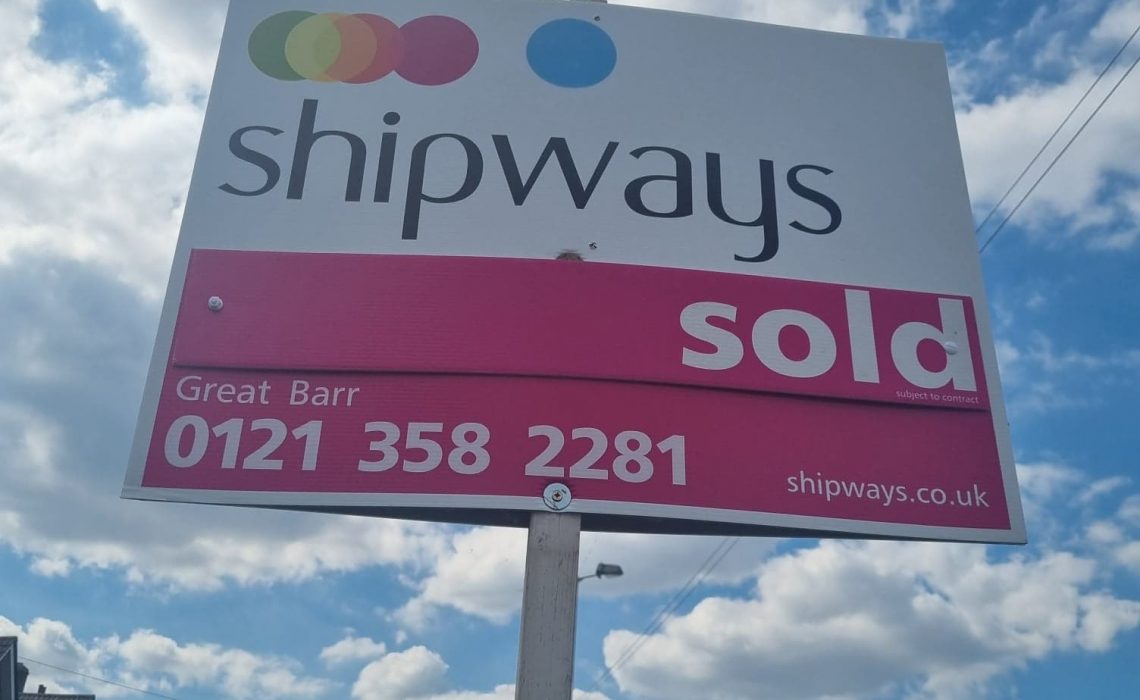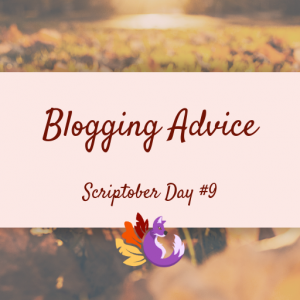* Please note that this information is from my own personal experience. There are things I have not experienced and there may be things I have missed (It is a long process for some) so please bare this in mind when reading.
So, now that the I’ve successfully moved home, I thought I’d put together a blog post all about the processes of selling your house and buying a new one! It’s a stressful process with a lot of anxieties surrounding it but it sure is worth it when you get to the end goal. Lewis and I are first time buyers and essentially first time sellers, with being the main people involved with helping my mum with the process of selling. Doing both at the same time is stressful, but it can be done and I definitely would’ve been happy to have been clued up beforehand, so I thought I’d write this for you guys to see, so you’re more knowing of the processes.
Selling
Choosing an estate agents to sell with
One very important first step in selling your home, is ensuring you have looked around and get a good estate agent who meets your needs and wants the same as you from your house sale. Of course every agent is selling because it’s their job to do so, but you want to know you and your home are in good hands, so choosing the right agents to go with is vital. We sold with Shipways but later wished we had used Paul Carr, due to us buying with them. Side note – If you buy and sell with the same agents, things may tend to run smoother. Once you have decided, you will then decide who you would like to represent you legally; Most estate agents will work closely with a particular solicitors, but you can choose your own if you wish.
Getting your home valued
Before you decide who you’d like to choose to sell your home, i.e, Estate agents, get valuations from various different ones. We had our home valued by Purple Bricks, Shipways and Dixons. Some of them operated from a physical shop and some operated online. We eventually chose Shipways. Once we were happy with the value they decided, we agreed to have them put it on the market. Be sure you are happy with your valuation. You are the one gaining the money from it and your value matters just as much as the professionals opinion, so together find a common ground and be happy before signing anything. Also be very open and upfront. Don’t be played and certainly don’t say ‘yes’ for the sake of it. Agents can be crafty, they made us sign, before then dropping the bombshell on us that we needed to pay upfront, that very moment for the EPC and images to be taken. Now, I don’t know about you but £175 isn’t something I just have spare in my wallet. It would’ve been nice to know before we started the paperwork instead of signing and then having the awkward shock on your face at the words “So are you paying the fee by card or cash?”..
Side note – During valuation, the agent will look around the inside and outside of your home. They will observe and take notes, measuring each room. They will see your land overall, the condition of the building and ask questions too about insulation, recent work done and other various things that will be important to the sale. Another quick note; You can put your home on the market with multiple estate agents.
Having your homes energy measured and photographed alongside a floor plan drawn up
Once you have decided to put your house on the market with an estate agent(s), you will have someone come round to check your energy performance so that they can rate it and provide an energy performance certificate (EPC) online for viewers and lenders to see. You will then have a photographer come round to photograph your home and draw up a floor plan to be put alongside your home and information online and in stores. It will then be officially on the market. Very soon after, if you wish, you will have a ‘For sale’ sign put up in your front garden. For the images, of course ensure you have tidied up and have your home in good order so that viewers will see the positives and want to come and view.
Viewings
Once your house goes on the market you should get your viewings come in either online, from the images in the shop or even from a compatibility list that the estate agent has put together. You may even get people booked in to view, before it has gone on the market online. Your viewings will vary depending on the agents you go with. Some will be open houses, whilst some will be just various dates and times. Either you will do the viewings or an estate agent will. You may be asked to leave the house but some agents allow you to stay. Pets may be asked to be kept in a room or a garden. Some people will make an offer during the viewing. Others will ring the agents afterwards. For us, I stayed during the visits due to our cats. I also found that our agent who managed the viewing wasn’t very insightful about our property and wasn’t able to answer questions from viewers or even really sell the property, so I stepped in.
I made some ‘brochures’ about the home and area. I included ‘Highlights of living in this home’, ‘Scope for the future’ and various positive places nearby. It made the visit more charming and memorable and also created that home atmosphere rather than just a house.
If you’re selling your family home, be mindful and try and prepare for the fact that if you’re present, you may hear some things that you find unpleasant. Investors may view your property and openly slate features or even discuss their plans to knock things down and gut the home. I found out the hard way and it did upset me at first as I hadn’t considered the investment side of things and assumed it would be a family or first time buyer.


Taking offers and accepting the right one
You will get offers. Some will be legitimate and some will be short lived. You will have lower bidders and higher bidders depending on who they are, why they want the property and how much it’s on the market for. We had multiple offers from the first viewing; Some were investors, others were families. We had some offer more and some offer the amount it was up for. We had offers fall through and change their mind and some offers were from some not so nice individuals, which made it a difficult position. After multiple open houses, a family came along and fell in love with the house. They offered on the spot and then immediately rang the office too. Long story short, we accepted their offer.
After ups, downs, left and right turns, front flips and backwards shimmying, these buyers turned out to be the ones who now own our old home. We went through months of uncertainty, issues with lenders, changing of lenders and also having to reduce the house price but some things happen for a reason and this was the right buyer for our house and we feel better for it, even after the hassle and tears shed. Offers and sales can be relatively straight forward, but they can also be the most ball achey times too. Buyers can pull out, find other properties or situations could change, which is a whole other situation.
Dealing with enquiries from your solicitor
Once you have accepted an offer and the buyers lenders have accepted their mortgage, you will begin the enquiry stage, where yours and your buyers solicitors will liaise regarding contracts, legal bits and then something called enquiries. Enquiries are basically a list of things that your buyers solicitor will ask for in regards to the house. Since the house is being given to the buyer, they will need EVERYTHING. Boiler certificates, window installation certificates, safety checks done, permits for work done, whether there is permission for your drive to be used etc. You should be able to find all of these things, if you’re organised, but some of the nitty gritty things asked for are a real pain in the butt. You will most likely have to contact services for your gas, boiler, solar panels (if you have them) and request certain things. Some certificates will need to be paid for (extortionate for certain ones) and others will be simple to obtain. Some enquiries will be simple ‘yes’ and ‘no’ questions about sewage and access to right or left side entries and also fence ownership and such. This is the stage that is long winded and you may find your patience wears rather thin with certain solicitors but it is all necessary for legal reasons so see it through.
My advice would be (When buying a house) to keep all enquiries and certificates given to you from the previous owner in a folder so that if you ever end up selling, you have enquiries and documents to hand!
Signing your transfer deed
During or after enquiries are sorted, you will have the solicitors send you the paperwork and transfer deeds which will then be given to your buyer to sign.
Completion and exchange
Once everything is done, enquiries are all answered and met, paperwork is all signed, you will then get to the final stretch, completion and exchange! You will hand over the keys and move out. All funds will be released and it’s then moving onto your next adventure.
Buying
Seeing a mortgage advisor
The first step in buying a new home is finding out how much you would be able to get from lenders. You would speak to a mortgage advisor who would input your earnings, incomings and outgoings and see what you can afford. They will look up your final wages and see which lenders have the best interest rates and who would be your best match at a mortgage offer. Once you have found a lender that suits your needs, your advisor will take it from there, getting you to fill out the required paperwork and to prove your identities and wages, usually over the last few months, unless you are self employed. They will then submit your application and once agreed, you will have something called an ‘agreement in principle (AIP)’. This is your proof that you can get a mortgage. It will come in handy for viewings and making offers on houses. Some estate agents will not allow viewings on their properties without seeing proof that you can get a mortgage. It also will make the process quicker when making offers and having offers accepted.
When you have an AIP you will sign all of the paperwork about your deposit, monthly payments and overall mortgage loan etc. You will then be advised by your advisor/ broker to look into home and life insurance. We got ours through our broker and it was a super easy process. Please note that before exchange you MUST have home insurance set up with your broker. They will ensure it starts once you have a completion date.
Side note – If you are self employed, you will have to provide a much more in depth look at your wages. I gave two years worth of my payslips and tax returns to prove my wage. Being self employed can also impact which lenders will offer you a mortgage. Dependant on your job, your lender options may also be lessened. For me, being a foster carer made the process longer and we had to find a lender who was ok with it.
Looking for a new home
Let’s face it, the first step we just crossed is probably going to come second. As soon as you decide to buy, you will be straight online looking for what you want! I know I was, months before I even went to a mortgage advisor. I have to admit though, it can be a mistake because the longer you leave getting your AIP, the less chance you will be able to buy the property you fell in love with that you found on the first page of the search results! When looking for homes, you can go into estate agent branches or even use many sites to try and see as many houses as possible. The internet makes looking for property incredibly easy, and a simple search for something like ‘houses for sale in Hobbs, NM‘ can give you a big list of potential new homes straight away. There’s something for everyone out there!
My advice is, if you see ones you like, don’t just go for how it looks. Look at the area, at bus routes, school catchment, shops, signal, pubs etc. and ensure you can find travel links for work, school and family etc. For us we had to look at bus routes for schools, work and leisure. Every single house we liked the look of, I had to do a google maps search to see the bus routes, times and journey times. It was a great way to get to know the surrounding area though!
When you find ones you like, write them down and get viewings booked in. I advise to either book it online or ring up. Some estate agents take a while on the online form requests, so if you’re very eager and it’s been on for some time and has ‘under offer’ on it, ring up to book in!
Viewings
When you book viewings, keep a list of all properties you have booked in with with dates and times of viewings. When you go to the houses, write the pros and cons. You can either go alone or take someone with you that you trust. Another persons perspective can help when you’re in a dreamy home search state. Take a look at the nitty gritty’s and think about the homes potential and what you will want from it. It’s easy to forget the future changes when we are so focused on the present. Try and see if you can envision a life there. My most important thing too was the feeling I got from the properties. I wasn’t afraid to really take a look at the houses in depth, since it’s such a huge commitment. Plus let’s face it, viewing agents seldom actually tried to really sell the positives and the selling points of the properties. I remember going to a house and requesting to go into the loft. The agent showing us said “Wait, there’s a loft conversion”, to which I replied “Well yes, there are pictures of a conversion and it’s on the floorpan”. Her response was brilliant – “Oh, I’ve shown so many people around here and you’re the first person to ever bring it up. I didn’t even know”. After this I found the stick and pulled down the conversion stairs so I could take a look.
Honestly, the agents mainly just stand there with a clipboard, tick off your name and answer questions if you have any. When you view houses, really make a point to view everything; The decor, the work that needs doing, the state of the building, the gas and electric, plug sockets, bathrooms, room sizes, loft conversions, solar panels, roof state, garden and the land. Although you can always book In for another viewing, it’s good to take a lot away from the first visit. First impressions matter!
Making offers & having one accepted
After the viewings you can give your offer directly to the viewing agent who will then call up the office and formally put it in. If you need time to think about it, you can ring up the office to make your offer. You can go higher, lower or stick with the exact price it is selling at. If it’s a property with multiple offers already and it’s one you love, making a slightly higher offer can work in your favour.
They will then take it back to the vendor (The person selling) and let you know the outcome. Remember that offers aren’t binding at this stage. They just make your mark on the vendors and estate agents and it just means you are a possible buyer of the property. You can make lots of offers on different properties and just hope that the vendor accepts yours.
You can retract your offer and also bid higher too if the property really is one that you want! Although it’s a horrible process, there is something called ‘gazumping’ which is ‘make a higher offer for a house than (someone whose offer has already been accepted by the seller) and thus succeed in acquiring the property’. So if you have found your dream home but it is already in the process of accepting an offer, you can bid higher, but it will mean that the person or family in the process of buying that house may be kicked out of the running, which just sucks really!
Once you have an offer accepted, it’s go time. This is where the fun and stress begins. You will be instructed a solicitor, or you will be instructed to find one. They will then liaise with your vendors solicitors to deal with enquiries, legalities, paperwork and all other professionals within the process. You will have to fill out forms and read a lot!
Editing and decluttering your things
Once you are in the swing of things, it’s a good idea to start decluttering and editing your belongings. This will make moving a lot easier and will help to prevent having excessive rubbish accumulating in your new home when you move. You can also see exactly what you have so that you can figure out how many boxes you need and how big of a moving van you require when the big day comes! It will also just be an incentive to get the ball rolling with the house buying process.
Packing
When you know you will be moving soon, start packing the things you don’t need hanging around. Maybe pack up your seasonal clothes that you aren’t using, anything you don’t need out anymore and just things that need to be out of the way.
When you have a date, you can then plan how long it will take to pack everything and exactly what you are taking with you. This will then make it easier to know what kind of van hire you need and also whether or not you are hiring professional movers/ packers.
Side note: When starting to pack, think about what you want to use such as cardboard boxes, plastic crates you can hire and things such as scissors, brown packaging tape, bubble wrap and other things that may come in handy. Definitely write notes on boxes for which room they will go in, in the new home. This way it keeps yay organised on moving day.
Ensure you pack your bedding, drinks, pillows, PJ’s and your clothes in one box that can be easily accessed upon arriving in your new home on the first day! That way you can make it feel like home very shortly after arriving.
Waiting on your solicitors to deal with sellers enquiries
Whilst you are home sorting packing, your solicitors will be dealing with the enquiry stage, where yours and your vendors solicitors will liaise regarding contracts, legal bits and then something called enquiries. Enquiries are basically a list of things that your solicitor will ask for in regards to the new house. Since the house is being handed over to you, you will need EVERYTHING. Boiler certificates, window installation certificates, safety checks done, permits for work done, whether there is permission for your drive to be used etc and all legal documents that you as the new home owner will need.
My advice would be to keep all enquiries and certificates given to you from the previous owner in a folder so that if you ever end up selling, you have enquiries and documents to hand! Also if you ever have work done, request and keep safe all documentation from it.
Signing the deeds
Once your solicitors are happy with your enquires, they will get paperwork and deeds signed by you and the vendor and will come up with a completion and exchange date that works for all parties. They will ensure that funds are ready to be released as well as your deposit and will give you a date to move! (AHH how exciting).
Moving out and moving in
Once the date has arrived for completion and exchange, you will pick up your new home keys. You will be given a time slot (depending on whether you are in a chain or not) and then you just need to transport your belongings from your old place to your new home! Congratulations. Chin chin. Wooo what. a. process!
I hope this post has been insightful.
Stay wonderful!












No Comments